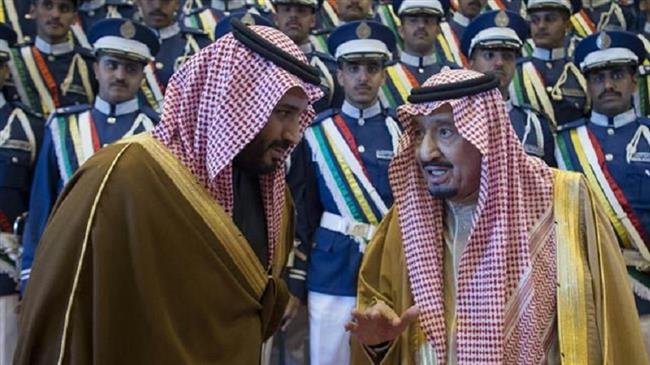
RNA - “The international community must push Saudi Arabian authorities to end this draconian crackdown and targeted repression of human rights defenders in the country”, Amnesty International’s Middle East Director of Campaigns Samah Hadid said, Middle East News reported.
“Instead of pursuing human rights reform, the government of Saudi Arabia has chosen to lash out with punitive measures in the face of criticism. States with significant influence in Saudi Arabia - such as the USA, UK and France - have now remained silent for far too long," Hadid added.
“The world cannot continue to look the other way as this relentless persecution of human rights defenders in Saudi Arabia continues. It is now time for other governments to join Canada in increasing the pressure on Saudi Arabia to release all prisoners of conscience immediately and unconditionally, and end the crackdown on freedom of expression in the country,” Hadid stated.
Genevieve Paul, the director of Amnesty’s francophone branch also noted that the Saudi government is put under pressure when news of detentions becomes public.
“I don’t think it will worsen the situation because very often when we make evident unjust imprisonments, like the case of Samar Badawi, that increases their protection and increases pressure on the government,” she stressed.
Saudi Arabia has recently stepped up politically-motivated arrests, prosecution, and conviction of peaceful dissident writers and human rights campaigners.
Canada called on Friday on Riyadh to “immediately release” civil and human rights activists recently arrested by the Saudi Arabian authorities, including Samar Badawi, an internationally recognized human rights defender. Badawi and another high-profile Saudi women's rights activist, Nassima al-Sadah, were arrested in the kingdom last week, sparking an international outcry.
The Saudi Arabian foreign ministry recalled its ambassador from Canada and given the Canadian ambassador 24 hours to leave the country, in response to Canada's statement of concern over the arrests of human rights activists in Saudi Arabia. Riyadh is also freezing all new trade and investment deals with Ottawa.
The United Nations human rights office had called on Saudi Arabia to release all peaceful activists as Riyadh continues its heavy-handed crackdown on dissent.
Ravina Shamdasani, spokeswoman of the UN rights office, during a press briefing in the Swiss city of Geneva on Tuesday demanded the immediate release of all rights advocates, including women held for campaigning to lift a long-time ban on driving.
After Samar Badawi, sister of jailed blogger Raif Badawi, and Nassima al-Sada detained days ago, Amnesty International stated that the recent arrests in Saudi Arabia is further proof that a crackdown against activists in the country is ongoing and shows no sign of relenting.
Since May, a number of prominent women’s rights activists were arrested and still remained in detention centers without charge and incommunicado with no access to their families or lawyers. Most of the detainees are prominent figures, who enjoy considerable respect among the Saudi grassroots, including university professors and a psychotherapist.
Riyadh so far labeled the detainees “traitors”, infuriating the country’s rights activists who fear additional arrests amid much-hyped reports of reforms led by Saudi Crown Prince Mohammad bin Salman.
Also, hundreds of princes, ministers and former ministers were detained in early November 2017 on the orders of Saudi Arabia’s so-called Anti-Corruption Committee headed by Crown Prince Mohammad bin Salman. The detained individuals faced allegations of money laundering, bribery, extorting officials, and misappropriation of public funds for personal benefit. A total of $100 billion was exacted from many of the detainees before they could be released.
Reforms have been accompanied by a heavy-handed crackdown on dissent, which has targeted clerics as well as some of the very female activists who campaigned for years to end the driving ban.
Also, Saudi Arabia is one of the top executioners in the world, with more than 2,000 people executed between 1985 and 2016.
847/940